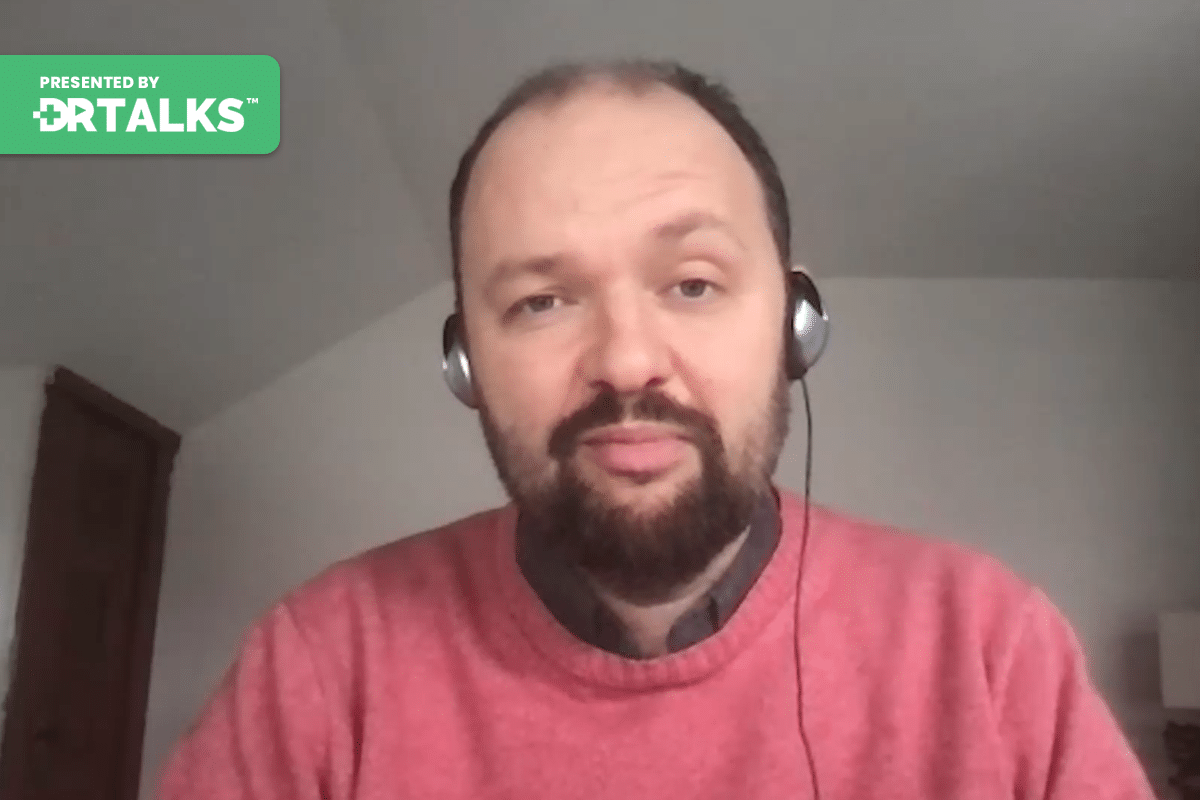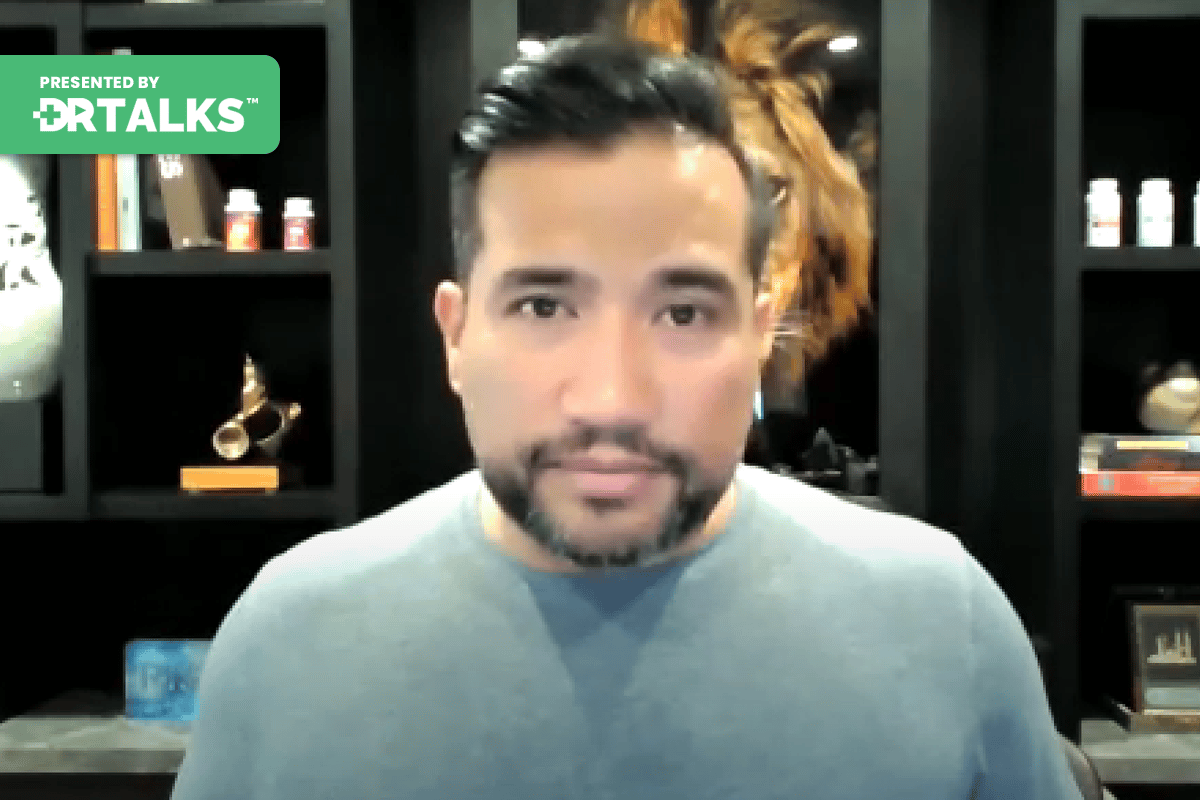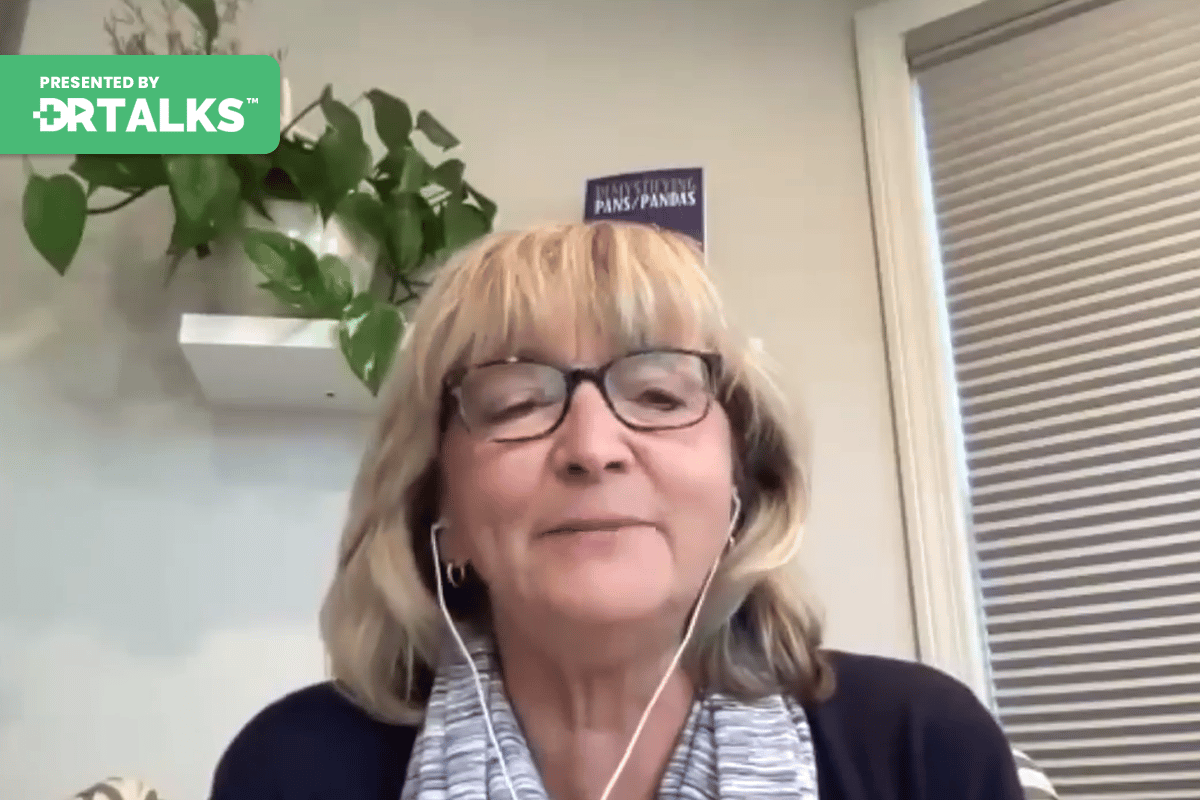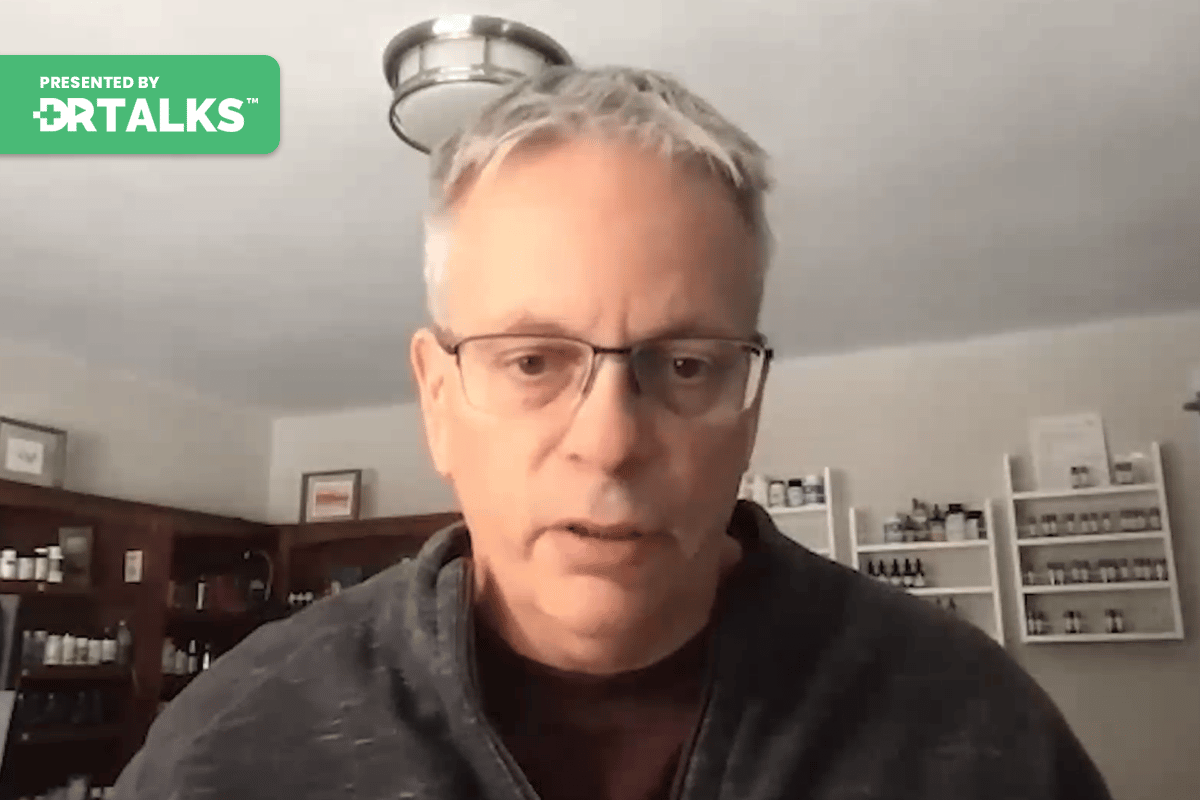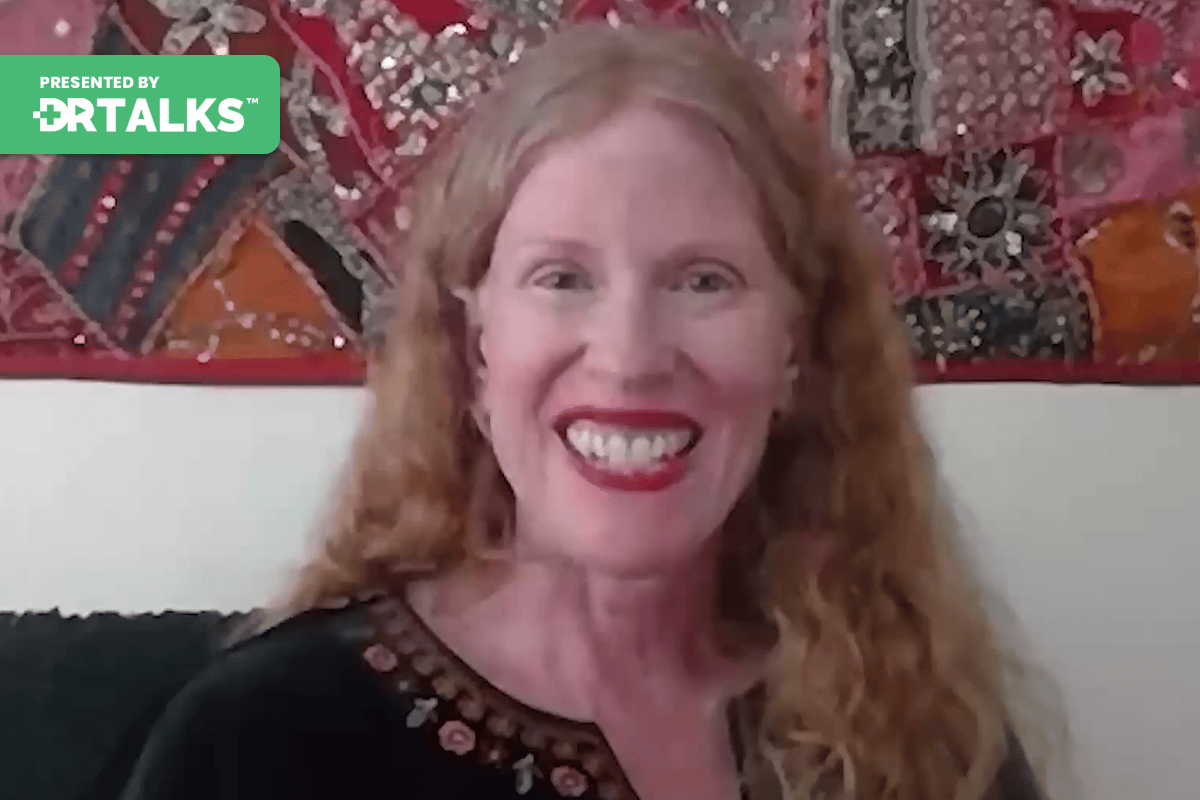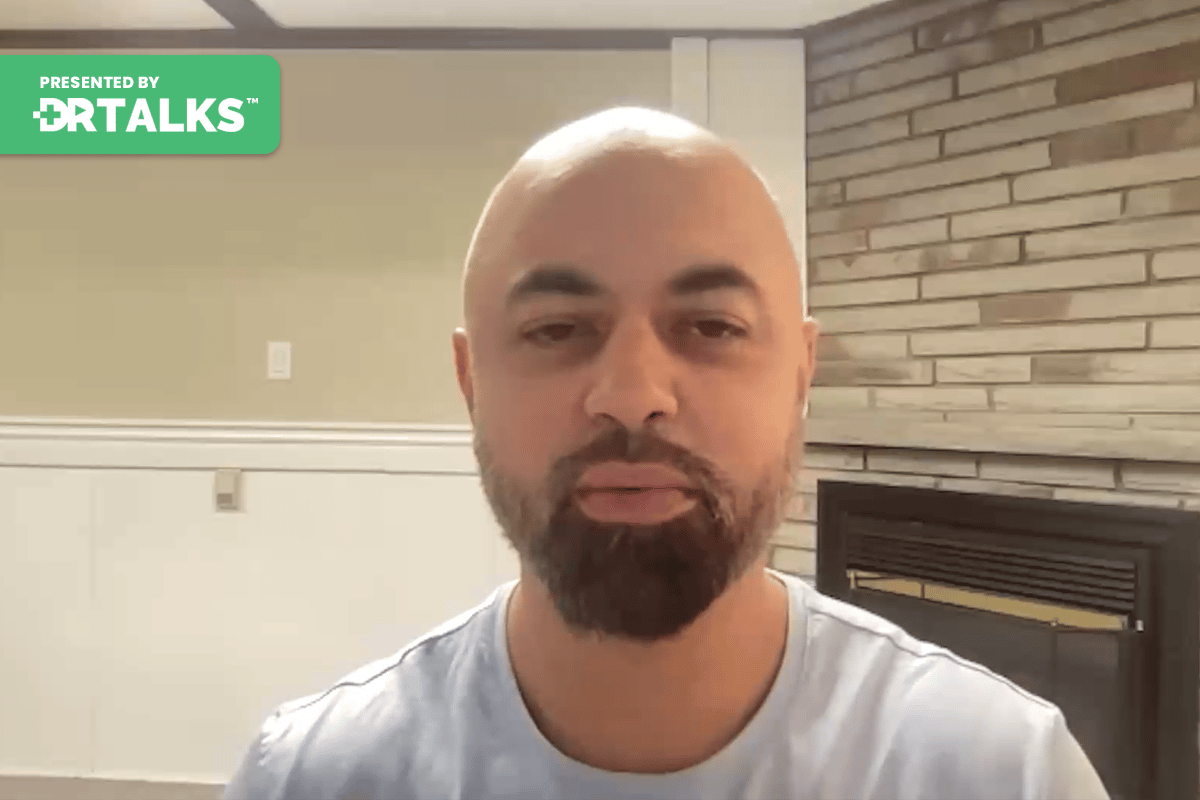Join the discussion below

Dr. Miles Nichols is a functional medicine doctor specializing in Lyme, mold illness, gut, thyroid, and autoimmunity. After Dr. Miles personally struggled with chronic fatigue in his early 20’s, Dr. Miles dedicated himself to figure out the root causes. He suffered with and recovered from thyroid dysfunction, autoimmunity, a gut... Read More

Ross Douthat joined The New York Times as an Opinion columnist in April 2009. His column appears every Tuesday and Sunday. Previously, he was a senior editor at The Atlantic. He is the author of “The Deep Places: A Memoir of Illness and Discovery,” which was published in October 2021.... Read More
- How a New York Times journalist with a skeptical view became chronically ill with a mystery illness
- The journey through medical uncertainty and the search for a diagnosis
- Exploration with chronic Lyme disease treatment despite ambiguous testing
- Getting worse before getting better
- The struggle with relationships and quality of life during chronic illness
- The complex social and medical perspectives on chronic illness causes and treatments
- The importance of hope when dealing with mysterious complex chronic symptoms
Dr. Miles Nichols
Hello everyone and welcome to the microbes and mental health summit. I’m Dr. Miles, your host here today with Ross Douthat and Ross is a columnist for the New York times as well as having been a senior editor for the Atlantic and has authored several books, the most recent of which is the deep places, a memoir of illness and discovery about his personal journey through chronic Lyme disease and Ross. I really wanted to have on this summit because it’s really nice to understand a little bit about someone who’s struggled with chronic disease, who also has the perspective of a journalist and a very skeptical and grounded perspective on life and not the type of person that sometimes people associate with chronic Lyme disease. So welcome, Ross, thank you for being here today.
Ross Douthat
Absolutely, thanks so much for having me. It’s a pleasure.
Dr. Miles Nichols
So, Ross tell us a little bit about your backstory and how it came to be that you were writing a book about your struggle with chronic Lyme.
Ross Douthat
So yeah, I’ll try and give you the brief summary. But I grew up in New England, I grew up in southern Connecticut, my mother’s family was from Maine obviously, so I grew up close to sort of ground zero for Lyme disease and had, you know, some general knowledge about the illness growing up, you know, you’re sort of aware of ticks as a problem and the bull’s eye rash as something to look out for and so on, but it really wasn’t an intense part of my part of my consciousness at that point. And then when I was in my twenties and early thirties I lived in Washington D. C. With my wife who was also from Connecticut and we had a couple of little kids, we were journalists. So we had jobs that enabled us to work remotely even before the pandemic enabled many many people to work remotely. And we had this basically a sort of treasured fantasy of getting out of Washington and moving back to New England, I personally had a sort of new England farmhouse fantasy, you know the vision of the colonial buildings and stone walls and fields and all of that. And at a certain point around 2015 we actually set out to make this fantasy reel and we sold our house in D. C. My wife was just pregnant with our third child and we bought a 17 nineties farmhouse, you know a couple hours from New York City 3.5 acres fields fences. You know outbuildings, anything you could imagine attached to a house built in 17 90 we had and while we were in the process of making the move it was sort of a multi stage process. So we were still in D. C.
But we had been up to the house for inspections and so on. I got really sick pretty rapidly in a pretty mysterious way. It started with what was diagnosed as a sort of a boil a red spot on my neck. It proceeded to sort of neck pain and headaches for a while and then it sort of became systemic and I had weird problems all over my body bowel problems, headaches, muscle pain, blazing chest pain that sent me to the emergency room because thinking I was having a heart attack and none of the doctors in Washington D. C. Were able to figure out what was wrong with me. They ran blood tests and more blood tests and all kinds of things and I got you know over about three months I got sort of worse and worse and worse. I lost 40 or £50.
I was sleeping like an hour or two a night. So I was in pretty disastrous shape. And finally somehow we dragged ourselves up to Connecticut to this dream house that was now seemed more like something out of Stephen King to me a sort of you know overlook hotel scenario. And once we were there I started seeing doctors who had some more experience with tick borne illness and Lyme disease and they said well you know you had a blood test for Lyme that was negative but you know often people have negative blood tests and your symptoms certainly seemed suspicious. And the fact that you were wandering through the high fields and this property you bought around when you got sick that was suspicious too.
And so at a certain point I just started taking antibiotics. And that sort of stabilized me. And that was sort of the end of the first phase where I stopped losing weight, I was able to sleep again. You know, this sort of feeling of kind of bodily bodily disintegration that I had sort of went away. I felt a little more normal but the pain didn’t go away. They sort of roving pain and weird symptomology throughout my body stayed with me. And so then I transitioned from the sort of mystery illness phase to the battle with chronic illness phase. Where I, you know, went through the process that lots and lots of people with this kind of experience with Lyme disease go through where first you see the doctors who tell you that you’ll be fine with four weeks of antibiotics. And then you see the slightly more aggressive doctors who let you stay on antibiotics for slightly longer and then you work your way up to the Lyme literate doctors who are willing to treat you for as long as it takes with whatever combination of antibiotics it takes. And in my case it took a long time indeed. And I did. In addition I was always taking antibiotics when I went off them, I immediately deteriorated. But like a lot of people I also did stranger and more experimental things around that sort of core treatment. And over time I very, very gradually got better. But it took basically six years from when I first got sick for me to be able to mostly go off antibiotics. So I reached a point where I still am, where I’d after seven going on eight years where I’d say most of the time I’m 95% better.
I still have symptoms that recur when I get sick with any other illness, anything that sort of weakens my immune system in any way I can bring the symptoms back and we have four kids. So you can imagine how often we encounter other illnesses, but that’s yeah, that’s basically the arc of the journey relative to other, some other people, you know, now obviously I’m sort of intimately familiar with this the world of this kind of experience, but relative to some people, I was fortunate in that the mystery illness phase was relatively short, as bad as it was. But the phase of, you know, trying to figure out how to actually not just stabilize but get better was quite a long and winding and complicated journey around, you know, the fringes of medicine.
Dr. Miles Nichols
Yeah, it sounds like with six years of really working on that recovery process and then also the challenges with getting diagnosed and that sense of the aspect of there being this mystery illness I’d like to highlight because there are a lot of people who do wind up feeling off in their blood looks from a conventional perspective, normal when just doing a Cbc and a CMP and a TSH and a lipid panel, that’s the common panels that are done in conventional care has happened to me when I was in my early twenties, I had chronic fatigue and I was trying to figure it out and they said, oh, nothing’s wrong, maybe you’re depressed.
And I said, well I don’t feel particularly depressed, but I feel tired and I’d like to figure that out. And I do have some brain fog and some difficulty concentrating and focusing and I started to question myself, am I depressed? Is this, am I cut out to do my work in the world that I want to do or should I give up? And that’s unfortunate that people get into that position. So I’m glad that you were able to find the phase of mystery illness to be a little shorter than some other people. And perhaps not as sort of diminishing you as a person, what’s wrong with you? Did you experience any of that sense of being diminished by the practitioners that you were seeing and Yeah,
Ross Douthat
Well, yeah, I mean on the one hand I experienced it on a short timescale, but in a very intense way because you know, we were moving, we were having a baby. I, you know, I write a column for, you know, America’s America’s largest newspaper. And my main reaction to being sick and feeling incapacitated was that, you know, I can’t I can’t be sick, right, this this cannot happen right now at this moment in my life. So I went to, you know, any doctor who would see me basically in that multi month period, I saw, you know, general practitioners, I saw neurologists, I saw, you know, I had an endoscopy, I had, you know, basically, you know, any test that that someone will give you I took. I saw rheumatologist and so on. I saw a psychiatrist.
And yeah, I mean, you very quickly, you very quickly realize that you are presenting to these doctors as someone who they are likely to assume has some kind of mental health issue. And that doesn’t mean that they think you are sort of, you know insane in some profound way. It’s more likely that they’re going to say, well you’re very stressed. You have a high pressure job, you know, you have little kids, you know, there’s some mind-body connection here that we don’t fully understand. That was sort of the default. But then beyond that there, you know, you get prescriptions that sort of reflect that kind of diagnosis. So I would be given sleeping pills and Xanax and antidepressants and anti anxiety medication sort of a battery of those kinds of things and you get sent to you get sent to psychiatric care.
And you know, I was in such a state that I was accepting of any kind of diagnosis. You know I had part of my mind that was saying well look I this doesn’t seem like a psychiatric problem because honestly my mind is the only part of me that still seems dysfunctional right? But then there was another part of me that said well this is you know if someone thinks they can get me better, I don’t care if it’s you know a physical treatment or a psychological treatment, I will do anything. And to their credit actually both of the main psychiatrists. I saw one in Washington D. C. And one in Connecticut told me flat out after you know spending an hour with me that they thought I had something physically wrong with me that it was not you couldn’t just you know there was presumed there could be some mental health component but this couldn’t be primarily explained in their experience by mental health issues.
So that was actually quite helpful to me. I don’t know exactly what direction my treatment would have taken if they had said oh yeah you’re clearly that you know this is clearly just clinical depression or you know or something or something else and we’re just going to sort of keep you on medication for that kind of problem. But even you know the reality is that even once you decide in your own mind right that clearly this is Lyme disease this is an infection that doesn’t sort of end this feeling of uncertainty. Right? I mean for one thing I never had a sort of C. D. C. Standard positive test for Lyme disease. You know you need to have the five bands right to have a formal positive test and I would get three bands in tests or I would get four bands right? And I tested positive for Barton nella, right? The lime co infection. But that is itself a controversial diagnosis. So there was never a moment. There was a moment when I as a rational person could say look I have the symptoms of Lyme disease and I’m getting what looks like almost positive tests again and again and I tested positive for a co infection. This has to be Lyme disease, right? But if you go to you know someone who is sort of outside the world of chronic illness and say yeah I’m sure I have Lyme have Lyme disease but I never got an actual positive test and also I’ve been treating it for two years.
You know they’re gonna raise their eyebrows at you for completely understandable reasons. I mean I think one of the biggest challenges in navigating this and then for me as a journalist in writing about it is trying to simultaneously see how this feels this kind of condition feels from the inside inside your own body. But also inside the world of chronic illness of serious treatment where it’s clear that these conditions exist, They’re caused by enduring infections as well as other things, right? But you know, and you have to treat them aggressively like that is within, within the world of chronic line that is completely clear, but you also have to be able to see like why from the outside the world can seem so strange and eccentric and conspiratorial and all of the things that you know, sort of create the hurdle that we have to get over in getting sort of institutional medicine to take these issues seriously.
Dr. Miles Nichols
That’s a really important perspective and a great point where there is, there are legitimate concerns about people over treating non existent things or making a bigger deal out of something than it is. And there are absolutely cases of people who are blowing out of proportion there ailments and ills and making them into bigger deals and maybe getting some outside attention or resources in order to be able to not have to do the hard work in life.
And I think there’s that attitude of that, Is this a scapegoat kind of thing where people are doing that by trying to externalize something that’s internal and or is there something that is internal that really is physiological, that is not just psychosomatic, but maybe it’s an interplay in a marriage and it’s a very broad spectrum and it’s a difficult thing to tease apart and it might be something that some people are using a scapegoat and other people are legitimately suffering and being ostracized and alienated and told that they’re being a scapegoat when they’re not, and this really is a complex issue. And I’m curious about your perspective as a journalists prior to going through this experience. Do you know, what did you have formulated thoughts and opinions around Lyme disease and this kind of medicine that you engaged with having gone through the experience? Where were you, what was the transformation inside of yourself around that?
Ross Douthat
So, I didn’t have strong views on the Lyme disease controversy in particular. I had sort of a general personal experience where I had sort of some family experience with chronic illness, particularly my mother, who had sort of mysterious mysterious problems when I was a kid that have never had a fully satisfactory diagnosis. And so that experience sort of on the biased me on the one hand to sort of take chronic illness reasonably seriously, right? And not just sort of assume that it’s strictly psychosomatic and so on, because, you know, but but then at the same time, it also sort of, you know, as a as a as a child of a parent who has this kind of experience, you sort of want to leave it behind. Right. So I was very sort of self conscious in my own life that, you know, whatever had been wrong with my mother.
You know, I didn’t live in, I just sort of took normal medical advice and did normal medical things and you know, accepted, you know, sort of accepted the medical consensus as the normal guide to my own life. And sort of prided myself on not operating infringed territory or doing weird things or sort of entertaining heterodox ideas. Right. So I sort of had both of those, both of that that sort of combined experience going in and underlying it, I think also was sort of a presumption that I think it’s just hard to escape when you haven’t had this kind of experience yourself that whatever chronic illness is, it’s sort of like, you know, a normal bad day, that is slightly worse. Right? And I think that’s a very common way of looking at chronic illness, whether you think it’s primarily a mental health issue or primarily a physiological issue or some combination thereof. If you listen to the language that people use to describe, you know, to describe chronic illness and you know, you mentioned fatigue, right, chronic fatigue syndrome, okay, everyone’s had fatigue, right? I’m a little fatigued right now, you know, I’ll definitely be fatigued this evening. Right.
And so it’s like, okay, you hear that description and you imagine your fatigue self, your healthy fatigue self, but a tiny bit worse or you are a description like brain fog, right? Like brain fog, Okay, everybody’s brain gets a little foggy from time to time. Right? So you take like your sort of worst mental acuity day and imagine it a little worse. And so just like whether it was with my own mother or other people I knew who suffered from these kind of things, that was how my imagination understood it, or like joint pain, right? You would read what I knew about Lyme disease was that it caused joint swelling and joint pain because that was sort of the original, the original case studies. And like, all right, well, I’ve had joint pain after, you know, a tough day of exercise or anything like that. And you imagine that 10% worse. And that’s, you know, one of the reasons I one of the many reasons I tried to write a book about this to sort of tell not to sort of analyze the experience, but offer a first person account is it really is important to convey that whatever is going on in chronic illness, whatever the etiology, whatever the cause for people who are really suffering, it’s not, it’s just a completely different order of existence. The kind of pain, the kind of fatigue, the kind of, you know, sort of mental acuity issues to say nothing of, you know, actual actual stronger neurological problems.
They just, there’s no comparison between that and the sort of everyday struggles that might have the same terminology attached to them and that to me was sort of the most shocking thing about, about getting sick this way to go from being a, you know, slightly overweight and fatigue, but basically fine 35 year old to being to being someone who was chronically ill was just, it was like, you know, you pass into a different dimension of existence where the experience of being an embodied human being is completely altered in a way that you couldn’t imagine before it begins and happens to you.
Dr. Miles Nichols
A parallel to that would be from my perspective, this being described what it’s like to fall in love. That’s a hard thing to describe. It’s like, and if you haven’t had that experience yet, you can kind of hear people talking about it. It sounds kind of strange. You can imagine it and maybe I could get a sense for what that would be like. But then when it happens is generally dramatically different than what I want imagined it to be. And I think it’s similar here with chronic illness and as I sit with people and hear their stories and listen to their experience with the deterioration in health into these sometimes mystery type conditions. Sometimes they get these diagnoses of chronic fatigue syndrome or fibromyalgia or arthritis that’s getting worse or they’re getting older and that’s why they’re feeling off or they’re having this mental health diagnosis, Maybe they’re just depressed or a little anxious and for the people who say that doesn’t feel right. I don’t feel understood, I don’t feel like I’m being listened to fully.
There is a spectrum, sometimes it’s quality of life issue and sometimes it’s all the way to functioning and not being able to work, not being able to maintain a relationship and it can get pretty significant for some people and not everyone gets to the realm of non functional. Yet the quality of life often becomes significantly deteriorated and then sometimes that bleeds into relationships, social life ability to function, ability to do anything beyond just get through the day and sometimes get through the day becomes a task in and of itself. Were you at that point with your illness where you were leading into the functional, was it threatening your work? Was it threatening your relationships?
Ross Douthat
Yes. Yes. I mean, probably more my relationships than my work. Again, one of the, I was so I was fortunate in that I didn’t have sort of intense neurological symptoms. I got brain fog at one point in treatment when I was doing I. V antibiotics and just sort of felt it sort of temporarily made all my symptoms worse as Lyme disease treatments often do. But that wasn’t in the, in my baseline, my main symptom was body pain, my brain, my mind was pretty functional when it came to sort of, you know, I write, I write columns. So I could analyze American politics effectively and I was also fortunate in that I could do that job without going into the office. So had I had a job, had I been like, you know, a doctor or a lawyer or any kind of job that we’re sort of, you know, normal office interaction is sort of central to the job.
I don’t think I could have held that job at the worst of it. Because of the worst of it, it was like, you know, you would have sort of a clear our and you would go to work during that hour and then I would have sort of these waves of pain and they just, you know, they were sort of emotionally destabilizing and sort of, you know, it wasn’t sort of sustained depression, it was more like bouts of agony and despair that then made me a really, really hard person to live with for, you know, my wife especially and you know, keep in mind again, we’ve moved to this sort of isolated farmhouse, right? Where we, you know, we plan to like make lots of friends and get really involved in the small town social life and we didn’t do any of that.
So she was trapped with me and three little kids and I sort of expended all of my energy trying to be normal for the kids and so that meant that she bore the brunt of what I was actually going through. And you know, in my case to get, you know to on the point you were making, I got worse. I got sick and then got, you know, I got sick very suddenly I sort of fell off a cliff, right? So in a way that was helpful to me in understanding the condition because it was such an extreme shift that I was never at the point where I could sort of deny that something had radically shifted, whereas obviously there are lots of people who fall into these conditions much more slowly. So it’s all, you’re always sort of questioning when that happens, like, well I don’t feel that different than I did a week ago or a month ago.
It’s just that when I look at the arc of the last two years, I think I’ve gotten steadily worse. So in my case, in my case it was more extreme. I went to the bottom faster than some people do. That was helpful in sort of forcing me to seek treatment and take treatment seriously. I literally felt like I just cannot live like this. But it was much, it was really hard on my core relationships and especially especially our marriage, it was pretty, it was pretty brutal and in the end we we moved from the farmhouse before when I’d only barely started to get better just because sort of that geographic location had become so sort of, you know, you can sort of psychically intertwined with our our suffering, my physical suffering, her suffering as my spouse. But yeah, I mean, the suffering of people who are connected to people with these illnesses is just sort of a category, a category unto itself, I think.
Dr. Miles Nichols
And sometimes it is the quality of life struggle, the relationship and or career struggle more so than a direct mental health. Now, there are absolutely research papers that do look at a cross reactivity between line bacteria, borrelia burgdorferi or Barton ella, and a cross reactive auto immunity against brain tissue like dopamine receptors in the brain and turbulent. And there can be a direct change of neurotransmitters that can express as mood imbalances. However, there’s another whole layer of the fact that people feel relatively clear and this is in your case mentally that that’s the part of me that feels the most stable but my life is falling apart and there’s a struggle in dealing with that, how the relationships are struggling how the life actual function and quality of feeling like I am enjoying and I have vibrancy and I have energy and I’m not in pain that wears on even a clear mind. It does.
Ross Douthat
Yes. And it creates its own problems for diagnosis and treatment right, where, you know, you talked about when you when you had fatigue and chronic fatigue and the doctors would say, well, you know, we we think you’re depressed and you’d say, well, I don’t think I’m depressed, but then you can get depressed right from, from contemplating your your condition or you can get angry, which is another, I think central aspect of the chronic illness experience this sort of that is it is it’s clearly mediated for some people by the physical symptoms themselves. Like on days, literally on days when I had symptoms in my head, right, I have symptoms moving around my body. There would be days when I would have a headache at the front of my head or, like, an itching in the back of my scalp or something.
Right? On those days, my mood was significantly altered in very distinctive ways that sometimes went in this sort of despair, depression direction, but often just went in this kind of omnidirectional anger, right? That, like, again, made me a really tough person to live with, but was also sort of connected to legitimate frustrations, right? You’re like, look, I’m incredibly sick and the American medical system has nothing to offer me, and here I am. And you know, this horrible pounding in the front of my head and, you know, doctors are telling me that it’s all in my head, Like, and but then that in turn creates this sense among skeptics of, like, oh man, these chronically ill people, they’re so angry all the time. They clearly have, like, you know, anger issues that are warping their perspectives and the anger issues do probably warp your perspective, but they are themselves downstream from the initial ailment in both direct and indirect ways.
Dr. Miles Nichols
Yeah, the one way I think about this is there’s some kind of it’s a spiraling or a co arising or an inter penetrative relationship between when, when the physiology gets off and you’re struggling and you’re in pain and you’re tired and you’re experiencing strange symptoms and other people aren’t understanding you and you’re having relationship struggles. That in turn, there’s a consciousness corollary, there’s an emotional experience of that relating to that and then that emotional experience then might dis regulate the nervous system further, leading to additional immune dysregulation leading to the infection getting worse, leading to more inflammation that leads to more depression.
And it can have this co arising in a sense or a feedback loop that seems to be perpetuating a cycle that can be challenging. And it’s something that I’m glad that we’re touching in on now. There’s research that does show one of the most recent studies looked at zero prevalence of limes, looking at People who test positive for lyme worldwide. And it came to the conclusion and of course, these research studies are always ongoing and it’s always going to change. But the conclusion was about 14.5% of the world population zero positive for lyme. So it’s about one in seven people and not everyone who has lime tigers in their blood are going to experience chronic disease symptoms.
So it’s not that one in seven people have this level that we’re discussing hero chronic disease, but it’s also true that like happened with you some who don’t actually test zero positive for Lyme, the blood test doesn’t show positive. It shows this ambiguous level of some typewriters and there are some symptoms and there ends up being a clinical diagnosis and treatment that’s effective that make it very much appear like there is a lot of lime and co infections that go undiagnosed due to this ambiguity and the interpretation and the current status of Lyme testing right now and the lyme literate doctor community, there’s this emphasis of trying to have different interpretations and find specialty labs who are going to do more thorough testing and there’s always an effort to improve that.
But with 14.5% of the world population and it’s a little over 9% in the United States. That can start to give this sense of how much of the ailments of today? Maybe and not saying that they are, but maybe related to chronic infections such as lime. Do you have any thoughts on the broader context of not just slime Also co infections? Post covid or other chronic illness that are occurring in the world today. And how has your thinking been shaped through your experience in a broader sociopolitical kind of landscape around the way that systems medical systems or family systems or religious institutions or other things are treating people who are struggling.
Ross Douthat
I mean one so one basic thing that happens is that you know, your own experience, your own sort of personal view of what’s happened to you inevitably colors any kind of broader analysis you do. Right. So there’s a fundamental debate there. Well, there’s you know, there’s sort of both the fundamental debate that you described earlier about like how much of chronic illness is mediated by mental health issues versus being, you know, a real physiological infection. And then the secondary debate is, you know, how much if we assume that an infection is causing a lot of this, how much is it a fundamentally a sort of immune system problem versus a continuing infection problem. Right.
And you see both of those debates and the debate over law over long term Covid. Right? You have both questions of like, well is this sort of, you know, effectively a kind of mass psychosomatic hysteria caused by living through a pandemic. But then within people who accept that long Covid is real. There’s a big, you know, questions of like why are we trying to treat Covid or are we trying to treat immune dysregulation? And because all of the success I had came from treating infection, you know, nothing I did in sort of a mental health space seemed to have any effect before I started taking antibiotics and nothing I did that was sort of focused on immune system regulation seem to have much success again absent like you know, massive attempts to kill bacteria.
That means that I have this sort of default where I you know, my default is like I think we are radically under diagnosing persistent infection and that it’s probably the big driver of lots of different things. So I get very interested in the studies showing for instance that multiple sclerosis is linked to, you know, Epstein barr infection, right? And my default is probably the Epstein barr is still hanging around in people’s bodies and causing this. Now I’m not a scientist, I’m a journalist. You know, I you know, I do a lot of work around, you know, reading and so on around the science of this.
So I have sort of scientific opinions but they’re not expert opinions at all. Right? So, that it’s clear to me that those assumptions that I have emerged out of my own experience, as much as a sort of you know, perfectly neutral reading of the evidence. Right? So that but that’s sort of my default I’m drawn to explanations both specific to lime and general to chronic illness. That that emphasize you know, residual hard to detect infections especially because you know, we you know I had a friend over to dinner who just had you know who just had shingles, right? Like this is a very, you know, this is a very commonplace thing in medicine in some areas, right? It’s just sort of accepted sure you get chickenpox and then it can come back right as shingles. So there are these zones where it’s sort of taken for granted that, you know, you have a lot of infections that your body is constantly suppressing. You know, AIDS patients have the drugs that they HIV positive, people have to take drugs to suppress things like toxoplasmosis, right, that just are there in their bodies and come out when their immune system is under stress.
So that, yeah, that’s my general bias with that said though, you know, I have, I have known people who have had chronic infections who have gotten better from chronic infections by essentially doing what you might call brain work, right? Where you’re essentially assuming that it’s a dis regulatory problem, your, you know, your your brain thinks it’s dealing with an infection that isn’t there anymore and you need to essentially train your brain and your immune system, you know, through, you can do it through their, you know, drug treatments, but you can also do it through a kind of, you know, sort of psychological work.
And they’ve had, they’ve had real success with that, people who sort of had, you know, had an infection, you know, I knew one guy who had a fungal infection, right, and, and it was treated and he thought it went away, but then the symptoms always came back and at some point he decided to try and treat it treat it as sort of like yeah, sort of brain deregulate, I’m not sure what the correct term is, but sort of that kind of dis regulation and he had a lot of success with that. So clearly it’s never as simple as everyone who has chronic illness has a chronic infection, right? There’s a lot of different things going on and everybody’s embodied experience is gonna be somewhat different.
Dr. Miles Nichols
I appreciate you bringing forward your bias as you as you make your, you know, discussion around this and I too have my bias from what I see in the practice and the treatments that seem effective and and yet I also appreciate and in fact teach and have in the clinic, brain retraining practices that are looking at that limbic system dis regulation around. Are you no longer feeling safe in the world because this bacteria or this toxin issue or this living in mold or whatever it was made your body so dis regulated that there is a kind of a trauma that was triggered physiologically that’s re triggering in the body and mind in a way that’s producing legitimate physiological symptoms? To what extent is it that to what extent is it still an infection that’s latent and chronic and present and the more I do this work, the more I see both sides of it. And I see people who respond to both sides of it and so that leaves us with an open question of what is or isn’t it or is it as simple as a single cause? Many times I feel there’s a static load that we can handle so much and coming at it from both angles simultaneously. For some people seem to do much better than just one angle and for others it seems like there’s a leverage point on one side that is a stronger lever that makes the difference where the other side didn’t seem to make much difference whatsoever. So as we’re summarizing and reviewing here what we’re talking about, I’m curious do you have anything that you would like to make sure to impart to people who may be struggling with chronic illness and they may be struggling with mental health concerns. They may be diagnosable mental health issues like depression or anxiety or A. D. H. D. They may even just be these subtle expressions of feeling a little bit brain foggy or struggling to deal with the deterioration in their quality of life and relationships and function. What would you like to share with these people from your experience?
Ross Douthat
I mean I think the point that important, most important to stress in certain ways is just hope right? The reality that you know there, yes every case is different and everyone has a different path to recovery and they’re, you know, there are situations where, you know, you have to learn, you have to learn to live with certain things as just sort of part of your life. But much of the time I would say based on my own experience and my reading and the people I’ve known most of the time, There are things you can do to get better, not 100% better maybe, but better in a way that will enable you to look back on this particular moment and say yes, I’m a lot better today than I was then, and I’m glad I made the effort. And the reality with Lyme treatment in particular, right, is this reality that a lot of the things you can do make you feel worse, right? That’s just sort of a baseline reality that a lot of people share with, you know, whether it’s antibiotics or more holistic treatments, alternative treatments, they all often have that in common.
And so again, I said earlier that in a weird way, I was lucky because of just how bad I felt, I knew it was sort of unsustainable and that I had to just try lots and lots of different things to get better and I think people who are a little better off than I was can sort of get trapped in a position where it’s like, well I’m sort of I’m okay, I’m you know, I’m reasonably stable right now, even though I’m miserable and the idea of like embarking on a new round of treatment is sort of daunting and sometimes you just have to stay in that place and you know, you have to do what you have to do in your life and not you know, sort of, you know, not embark on that new round, but it really can be worth it to, to work as you know, as awful as it can seem to try new things and find new doctors and try new treatments, you know, I’ve been at this for almost eight years and I you know, I have gotten a lot better and it is completely worth it and if you can get better it can be worth it for you too and you need to keep that in mind in, you know, when when the darkest times come, you need to hold on to that that read of hope and that awareness that other people have been through this, you can get through this, it’s worth it to try.
Dr. Miles Nichols
The message of hope is so important because that is one of the, unfortunately the number one cause of death for people with Lyme, when struggling with Lyme is suicide and and that’s I mean it’s sad and it’s hard to deal with that sometimes because the quality of life can be so poor and it can get into this despair of things are never going to change and this is not a life worth living. So please do know if you’re in that place, that there is hope to recover, there is hope to feel better, there is hope and it may take a while, it may take different practitioners in different paths and it may be a struggle getting a little worse before getting better, but there is hope and many people do recover in significant ways and so that is a very important message. Thank you so much for sharing it.
Ross Douthat
Yeah, well, thank you so much for having me
Dr. Miles Nichols
Ross. How can people find out about your book or your work? What would you like to direct people in order to want to learn more? Who want to hear more about you and your work?
Ross Douthat
I mean, the easiest thing is just, you know, the book itself is basically the most complete statement of my experience and my interpretation of that experience. It’s called The Deep Places, it’s on amazon and your local bookseller and all those kinds of places, so that’s sort of the main place to go. I write a column for The Times every couple twice a week. I mostly write about politics and religion and world affairs, but I’ve written a fair amount of columns about this subject, long haul, covid things related to that. And there are some excerpts from my book from when it came out, a few longer essays. So, if you look me up, you know, on the New York Times website, you’ll find the list of columns and you can undoubtedly sift through and find ones that are relevant to this discussion, too. But those are the main, you know, the book and and my columns are the main things I have to offer.
Dr. Miles Nichols
Well, thank you so much, Ross. It’s been a pleasure chatting with you and thank you everyone for watching. This is Dr. Miles, The Microbes and Mental Health Summit, Take care and have a wonderful
Downloads

